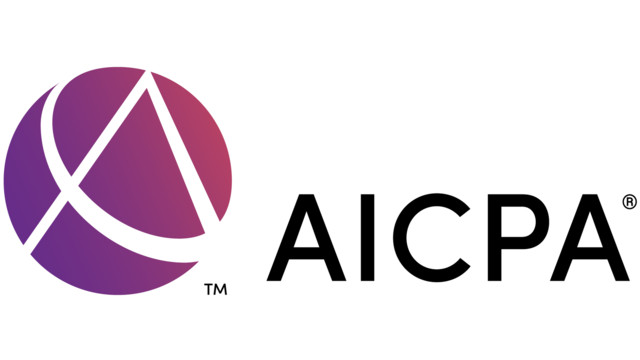As global organizations face an increasingly complex risk environment, a new report issued today by the AICPA & CIMA and NC State’s Enterprise Risk Management (ERM) Initiative found that the majority have insufficient approaches to risk management and immature ERM processes. The report found that approximately 60 percent of global finance and business leaders agree that the volume and complexity of corporate risk have increased “mostly” or “extensively” over the last five years. However, over two-thirds of respondents do not have complete ERM processes in place.
The 2022 Global State of Risk Oversight: Managing the Rapidly Evolving Risk Landscape includes insights from a survey of 747 global senior finance and business leaders conducted in 2022. The survey measured finance-related executives’ assessments of the level of maturity in their organization’s proactive management of these risks through adoption of enterprise risk management (ERM) processes (a methodology that looks at risk management strategically from the perspective of the entire firm or organization and aims to identify, assess, and prepare for potential losses, dangers, hazards, and other potentials for harm that may interfere with an organization’s operations and objectives and/or lead to losses).
Increased uncertainty and rapidly evolving events, including geopolitical shifts, supply chain disruptions, competition for talent, increased volume of available data, climate change concerns, and lingering effects of a global pandemic, are continuing to drive the complexity of risk challenges senior executives across the globe must navigate. Even when faced with these complexities of risks, fewer than half of respondents said they do not believe their risk management oversight model is “mature” or “robust” (Europe & U.K. – 31 percent, Asia & Australasia – 41 percent, Africa & Middle East – 26 percent, U.S. – 29 percent). And, similarly, only between one-third to one-half of respondents claim to have a complete ERM processes in place (Europe & U.K. – 33 percent, Asia & Australasia – 41 percent, Africa & Middle East – 29 percent, U.S. – 32 percent).
“Globally, organizations face the realities of an increasingly complex risk environment while realizing their current approach to risk oversight may be insufficient in a rapidly changing risk environment,” according to Mark Beasley, KPMG Professor of Accounting and Director of the ERM Initiative at NC State. “And interestingly, even prior to the massively disruptive Covid-19 pandemic, business leaders have sensed an overwhelming volume and complexity of risks impacting their organizations. As this and our previous studies suggest, risk management does not appear to be getting easier.”
Business leaders understand their organizations must take risks to generate returns. But there was a noticeable variation among respondents when asked if their risk management processes provided a competitive advantage. A higher percentage of respondents in Asia & Australasia (40 percent) and Africa & Middle East (34 percent) believe their risk oversight is providing an important competitive advantage, while the percentages are much lower in Europe & U.K. (13 percent) and the U.S. (11 percent). However, the report shows a disconnect among views from around the world when risk exposures are considered by senior executives when evaluating possible new strategic initiatives, with higher percentages reported in Asia & Australasia and Africa & Middle East (both 66 percent) and slightly lower in Europe & U.K. (58 percent) and the U.S. (47 percent).
“Business leaders that embrace the reality that risk and return are related are likely to increase their investment in enterprise risk oversight to strengthen their organization’s resiliency and agility when navigating the complex and uncertain risk landscape,” said Ash Noah, CPA, CGMA, Vice President & Managing Director of Management Accounting at the Association of International Certified Professional Accountants. “Organizational value goes beyond the balance sheet. Along with providing protection for businesses, embracing ERM supports the creation of value and long-term viability and sustainability.”
Additional key findings from the report include:
- Respondents in most regions noted Covid-19 having “mostly” or “extensively” changed the nature of top risks affecting their organization – Europe & U.K. (48 percent), Africa & Middle East (61 percent), Asia & Australasia (71 percent), U.S. (41 percent).
- Most executives do not believe their organization’s risk management processes provide competitive advantage – Europe & U.K. (13 percent), Africa & Middle East (34 percent), Asia & Australasia (40 percent), U.S. (11 percent).
- About one-half of organizations outside of the U.S. describe their metrics for monitoring risks as “mostly” to “extensively” robust (Europe & U.K. – 47 percent, Asia & Australasia – 47 percent, Africa & Middle East – 50 percent), while only 31 percent in the U.S. describe their metrics at that level.
- Most organizations (Europe & U.K. – 64 percent, Asia & Australasia – 64 percent, Africa & Middle East – 76 percent) claim to have a standardized process for identifying risks, where the U.S. is the exception at 51 percent.
Thanks for reading CPA Practice Advisor!
Subscribe Already registered? Log In
Need more information? Read the FAQs
Tags: Climate change, Risk Management




